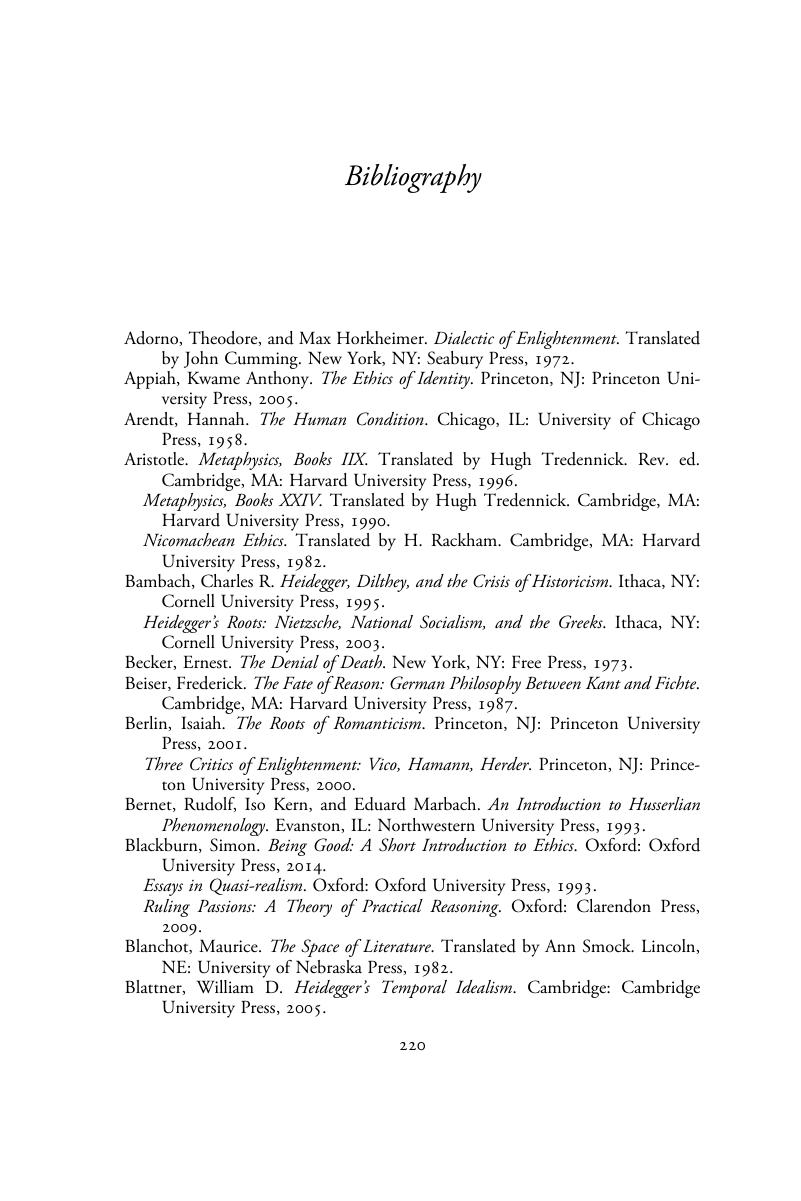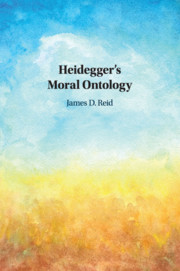Book contents
- Heidegger’s Moral Ontology
- Heidegger’s Moral Ontology
- Copyright page
- Contents
- Acknowledgments
- Introduction
- Chapter 1 Ethical Criticism
- Chapter 2 Ethical Truth and the Quarrel between the Ancients and Moderns
- Chapter 3 Excursus on Being and the Good
- Chapter 4 Things and Persons
- Chapter 5 Owning Up to Life and Death
- Chapter 6 The Ethics and Ontology of Formal Indication
- Conclusion
- Bibliography
- Index
- References
Bibliography
Published online by Cambridge University Press: 05 November 2018
- Heidegger’s Moral Ontology
- Heidegger’s Moral Ontology
- Copyright page
- Contents
- Acknowledgments
- Introduction
- Chapter 1 Ethical Criticism
- Chapter 2 Ethical Truth and the Quarrel between the Ancients and Moderns
- Chapter 3 Excursus on Being and the Good
- Chapter 4 Things and Persons
- Chapter 5 Owning Up to Life and Death
- Chapter 6 The Ethics and Ontology of Formal Indication
- Conclusion
- Bibliography
- Index
- References
Summary

- Type
- Chapter
- Information
- Heidegger's Moral Ontology , pp. 220 - 233Publisher: Cambridge University PressPrint publication year: 2018



